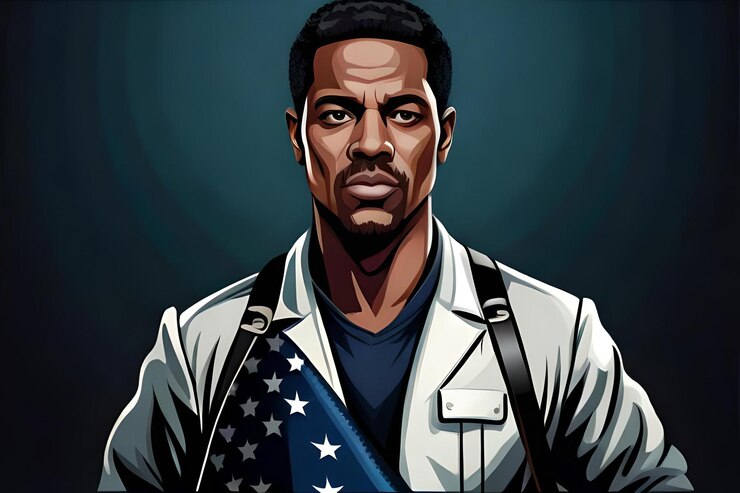Breaking Boundaries: How Tom Smothers Revolutionized Television Comedy
Television comedy has come a long way since its early days of slapstick humor and predictable punchlines. And while there have been countless comedians who have left their mark on the industry, few can compare to the revolutionary impact of Tom Smothers. With his quick wit, irreverent style, and fearless approach to tackling controversial topics, Smothers pushed boundaries and forever changed the landscape of television comedy.
In this blog post, we will delve into the life and career of Tom Smothers – from his humble beginnings in an army family to his groundbreaking work on The Smothers Brothers Comedy Hour. We’ll take a closer look at how he challenged societal norms through daring sketches and battles with censors. So we’ll also explore his political involvement and activism, as well as his foray into film. We’ll examine his lasting legacy in the world of entertainment.
Early Life and Career
Tom Smothers was born on February 2, 1937, in New York City. Raised in an army family that moved frequently during his childhood, Smothers learned to adapt quickly and develop a sense of humor as a coping mechanism. With his father serving in the military, he often found solace in comedy as a way to connect with others.
After completing high school, Tom Smothers attended San Jose State College where he joined the Delta Upsilon fraternity. It was during this time that he discovered his talent for entertaining others with his quick wit and comedic timing. He began performing at college events and local clubs, honing his skills and gaining recognition for his unique style of comedy.
Hollywood and Broadway
Smothers’ career took off when he made the leap from small-time gigs to Hollywood and Broadway productions. He landed roles on popular television shows such as The Steve Allen Show and The Tonight Show Starring Johnny Carson, showcasing his ability to captivate audiences with both scripted sketches and improvised banter. His success led him to Broadway where he starred in hit musicals like I Love My Wife.
An Army Family
Tom Smothers was born into an army family, which meant constantly moving from place to place. This nomadic lifestyle had a profound impact on his sense of humor and ability to connect with diverse audiences. Growing up in different cities exposed him to various cultures, allowing him to understand the nuances of comedy that transcended regional boundaries.
Being part of an army family also taught Tom important values such as discipline and teamwork. These qualities would later prove instrumental in his success as a comedian and television host. The structured environment of military life instilled in him a strong work ethic that translated into the meticulous planning and execution of his comedic routines.
Furthermore, living in close-knit communities within military bases gave Tom firsthand experience interacting with people from all walks of life. This exposure fostered empathy and understanding, enabling him to create comedy that resonated with not just one specific group but with audiences across the nation.
Growing up in an army family shaped Tom Smothers’ comedic style by providing him with unique experiences, values, and perspectives. His upbringing laid the foundation for his future success by instilling discipline, teamwork skills, and a deep appreciation for diversity. These early influences would contribute to breaking boundaries in television comedy that revolutionized the industry forever.
Connecting With the Young
Tom Smothers had a unique ability to connect with the younger generation. Growing up in an army family, he learned how to adapt and relate to people from different backgrounds. This skill served him well as he embarked on his career in comedy.
With his quick wit and relatable humor, Tom was able to capture the attention of young audiences. His comedic style resonated with the youth of the time, who were searching for something fresh and exciting. Whether it was through his stand-up routines or television appearances, Tom had a knack for making people laugh and feel understood.
His ability to connect with the young didn’t stop at comedy shows. Tom actively engaged with fans through various mediums like radio interviews and fan mail responses. He took the time to listen to their stories and concerns, further solidifying his connection with them.
Tom Smothers’ genuine interest in connecting with the younger generation set him apart from other comedians of his time. His ability to understand their perspectives and make them feel heard made him a beloved figure among young audiences everywhere.
Hollywood and Broadway
Tom Smothers’ talent for comedy quickly caught the attention of Hollywood and Broadway. With his unique blend of wit, charm, and musical talent, he became a sought-after performer in both mediums.
In Hollywood, Tom appeared in several films throughout his career. He showcased his comedic skills alongside leading actors and actresses, leaving audiences in stitches with his quick one-liners and impeccable timing. His performances brought laughter to the big screen while solidifying his status as a versatile entertainer.
On Broadway, Tom proved that his comedic genius could thrive on the stage as well. He starred in multiple successful productions, captivating audiences with his infectious energy and distinctive style of humor. Whether it was through song or slapstick comedy routines, Tom’s presence on Broadway was always met with uproarious laughter.
From Hollywood to Broadway and back again, Tom Smothers left an indelible mark on both worlds. His ability to captivate audiences across different platforms is a testament to his skill as a performer. And while many may remember him for revolutionizing television comedy with “The Smothers Brothers Comedy Hour,” it is important not to overlook the impact he had in shaping entertainment on the silver screen and live theater stages alike.
The Smothers Brothers Comedy Hour and Its Impact
The Smothers Brothers Comedy Hour took the television world by storm in the late 1960s. With their unique blend of music, comedy, and social commentary, Tom and Dick Smothers captivated audiences across America. The show quickly became a cultural phenomenon, thanks to its groundbreaking format and willingness to tackle controversial issues.
One of the defining moments in TV history came when The Smothers Brothers Comedy Hour aired an episode featuring Pete Seeger singing his anti-war anthem “Waist Deep in the Big Muddy.” Despite initial approval from network executives, CBS decided at the last minute to censor the performance due to its political message. This incident sparked outrage among viewers and led to a public outcry for freedom of expression on television.
Not one to shy away from controversy, Tom Smothers fought against censorship throughout the show’s run. He pushed boundaries with daring sketches that addressed topics like racism, war, and government corruption. These sketches challenged societal norms and paved the way for future comedians who sought to use humor as a tool for social criticism.
The impact of The Smothers Brothers Comedy Hour cannot be overstated. It not only revolutionized television comedy but also played a significant role in shaping public opinion during a time of great social upheaval. By fearlessly addressing contentious issues through satire and music, Tom and Dick Smothers left an indelible mark on both entertainment and activism alike.
The Show’s Turning Point in TV History
The Smothers Brothers Comedy Hour was not just another television variety show. It was a groundbreaking program that pushed the boundaries of what could be done on TV, forever changing the landscape of comedy. The turning point came when Tom and Dick Smothers used their platform to address controversial issues such as the Vietnam War and civil rights.
The show became a platform for political commentary and satire, challenging the status quo and sparking important conversations across America. With sketches like “The Yo-Yo Man” and “Mom Always Liked You Best,” the Smothers Brothers brought humor to serious topics, using comedy as a vehicle for social commentary.
But this bold approach did not come without its challenges. The brothers frequently clashed with network censors who wanted to tone down or remove potentially offensive material from the show. This battle between creativity and censorship only fueled their determination to push boundaries even further.
In an era when most shows followed a safe formula, The Smothers Brothers Comedy Hour dared to be different. Its impact on television history cannot be overstated, paving the way for future comedians and satirists to tackle controversial subjects in an entertaining yet thought-provoking manner. Tom Smothers’ innovative approach forever changed how we view comedy on television.
Daring Sketches and Battles with Censors
The Smothers Brothers Comedy Hour pushed boundaries like never before with their daring sketches, often leading to battles with censors. Tom Smothers was unafraid to tackle controversial topics and challenge societal norms, which made the show both groundbreaking and polarizing.
In one notable sketch, Tom played a tooth fairy who tries to collect political secrets instead of teeth. This clever and satirical commentary on government surveillance sparked outrage among some viewers but won the hearts of many others who appreciated its boldness.
Another sketch that caused a stir was titled “The Last Dead Soldier.” It depicted an emotional scene where soldiers carry a coffin draped in an American flag while singing “We’ll Meet Again.” The powerful imagery struck a chord with audiences but faced backlash from those who felt it disrespected the military.
Despite these battles with censors, Tom Smothers remained steadfast in his commitment to pushing boundaries and sparking important conversations through comedy. His willingness to take risks paved the way for future comedians to explore sensitive subjects on television.
Political Involvement and Activism
Tom Smothers, known for his comedic genius, didn’t shy away from political involvement and activism. In the late 1960s, during a time of social upheaval and political tension in America, he used his platform on The Smothers Brothers Comedy Hour to address important issues. With wit and satire, Tom took aim at topics like the Vietnam War, civil rights, and censorship.
One of the show’s most controversial moments came when Tom invited folk singer Pete Seeger to perform “Waist Deep in the Big Muddy,” a song that criticized President Lyndon B. Johnson’s handling of the war. Despite pressure from network executives to remove the segment, Tom stood firm in defending artistic expression and freedom of speech.
His activism wasn’t limited to television though; Tom actively participated in various protests and demonstrations throughout his career. He marched alongside Martin Luther King Jr., advocating for equal rights. He also supported environmental causes such as saving California’s redwood forests.
Tom Smothers was not afraid to use comedy as a tool for social commentary and change. By challenging authority figures through his humor-filled sketches and outspoken beliefs, he left an indelible mark on both entertainment history and political activism alike
Tom Smothers in Film
Tom Smothers, best known for his groundbreaking work on television, also left a lasting impact on the world of film. While he may not have had as extensive a career in movies as some other comedic actors of his time, Smothers brought his unique brand of wit and charm to the big screen.
In the late 1960s and early 1970s, Tom Smothers starred in several films that showcased his comedic talents. From “Get to Know Your Rabbit” to “The Yo-Yo Man,” Smothers proved that he could hold his own on the silver screen. His performances were filled with sharp quips and impeccable timing, making audiences laugh out loud.
Although Tom Smothers didn’t achieve the same level of success in film as he did on television, his contributions shouldn’t be overlooked. He brought a certain charisma and energy to every role he played, leaving viewers entertained and wanting more. Even though he may not have been a Hollywood superstar, Tom Smothers will always be remembered for bringing laughter into people’s lives through both television and film.
Later Work and Legacy
After the Smothers Brothers Comedy Hour ended, Tom Smothers continued to make his mark on the entertainment industry. He appeared in various television shows and films, including “The Love Boat” and “Diagnosis Murder.” However, it was clear that the revolutionary spirit of his earlier work had left a lasting impact.
Tom Smothers’ legacy can be seen in the boundary-pushing comedians who followed in his footsteps. His willingness to challenge authority and use humor as a tool for social commentary paved the way for satirical shows like “Saturday Night Live” and “The Daily Show.”
In addition to his comedy career, Smothers became involved in political activism. He used his platform to speak out against war and advocate for causes such as civil rights and freedom of speech. By using humor as a weapon against injustice, he showed us that laughter can be a powerful force for change.
Today, Tom Smothers is remembered not only for his comedic talent but also for his bravery in challenging societal norms through television comedy. His ability to push boundaries while remaining genuinely funny made him one of the most influential figures in television history.
As we look back on Tom’s impressive body of work, we can’t help but appreciate how he broke barriers with wit and charm. His unique brand of comedy continues to inspire generations of entertainers who strive to make people laugh while making them think.
In an ever-changing landscape of television comedy, Tom Smothers will always hold a special place as a trailblazer who revolutionized the medium. His legacy lives on through those he inspired – reminding us that laughter has the power to transcend boundaries and bring about positive change.







